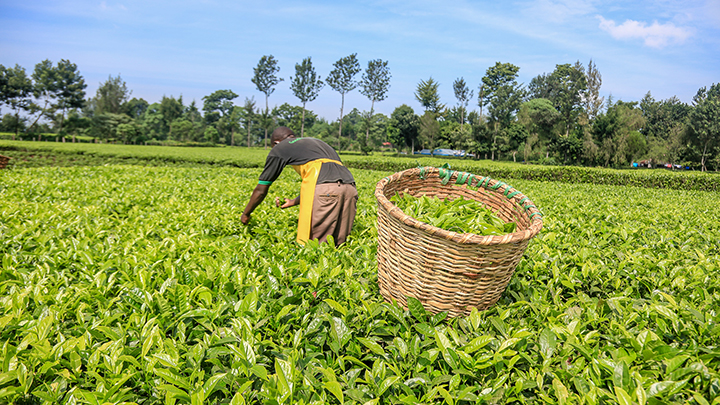Kenya's smallholder tea farmers are poised for historic windfall as the Kenya Tea Development Agency (Holdings) Limited (KTDA) prepares to distribute a final payout of Sh44.15 billion for their supplies in the financial year ending on June 30.
This much-anticipated bonus will benefit an estimated 600,000 farmers affiliated with KTDA's 54 factories over the next two weeks, commencing on Monday. Notably, this payout will be accompanied by payments for green leaf supplied this month.
The bonus disbursement is projected to bolster the annual earnings of these farmers by an impressive 7.6 per cent, reaching an all-time high of Sh67.7 billion, compared to the Sh62.89 billion earned at the same juncture last year.
This surge in earnings can be chiefly attributed to the upswing in global tea prices, with the average tea selling price surging from Sh311 to Sh341 per kilogramme (kg) during the specified period.
For every kilo of green leaf sold, tea farmers are poised to receive an average of Sh59.02, marking a notable 17.6 per cent increase from the previous year's Sh50.18 per kilo.
Read More
KTDA Holdings Limited Group Head of Corporate Affairs, Ndiga Kithae, explained the factors contributing to this year's remarkable payout.
"This year's total payout to smallholder farmers is attributed to increased sales volume, prudent cost management, and a favourable foreign exchange regime. Further, increased sales of orthodox tea this year have contributed to higher earnings for farmers, with 10 million kilogrammes of orthodox tea having been sold this year from 11 factories that are processing the tea, up from three million kilograms last year," Kithae said.
Nonetheless, these improved earnings are juxtaposed against a backdrop of a nine per cent decline in green leaf production.
In the fiscal year ending in June, green leaf production dwindled to 1.145 billion kilogrammes from 1.254 billion kilogrammes in 2022, marking the lowest output for the sector since 2019.
The drop in tea production can, in part, be ascribed to drought conditions and deficient rainfall, which significantly impeded farm output, leading to a 1.6 per cent contraction in the agriculture sector last year.
Highlighting the impact of these adverse weather conditions, Kithae noted, "Agricultural production was affected by the drought conditions in 2022, with tea production, for instance, falling to 535,000 tonnes from 537,800 tonnes in 2021 according to data from the Kenya National Bureau of Statistics."
The improved pricing of green leaf comes in the wake of ongoing reforms in the sector, including the introduction of a minimum tea price or reserve price at the Mombasa auction in July 2021.
Kithae underscored the significance of this move, stating, "The reserve price at the auction has provided a cushion for farmers by ensuring their teas are not sold below a certain price point. This, in turn, has translated to higher earnings per kilo of sold tea compared to the period when a similar arrangement did not exist."
Additionally, favourable currency dynamics have contributed to the prosperity of tea earnings, with the green leaf, sold in the international market in dollars, fetching more in local currency terms due to a weaker shilling.
This record-breaking payout serves as a testament to the resilience and dedication of Kenya's smallholder tea farmers, who have persevered through challenges and embraced reforms, reaping the rewards of their hard work and commitment to the tea industry.


-1757663582.jpeg)

-1757586635.jpg)




